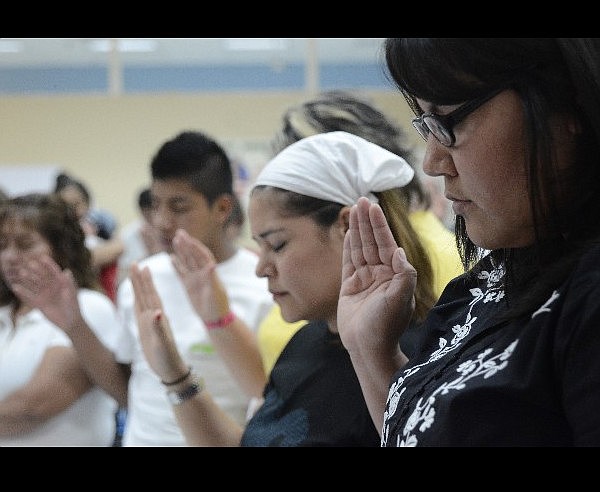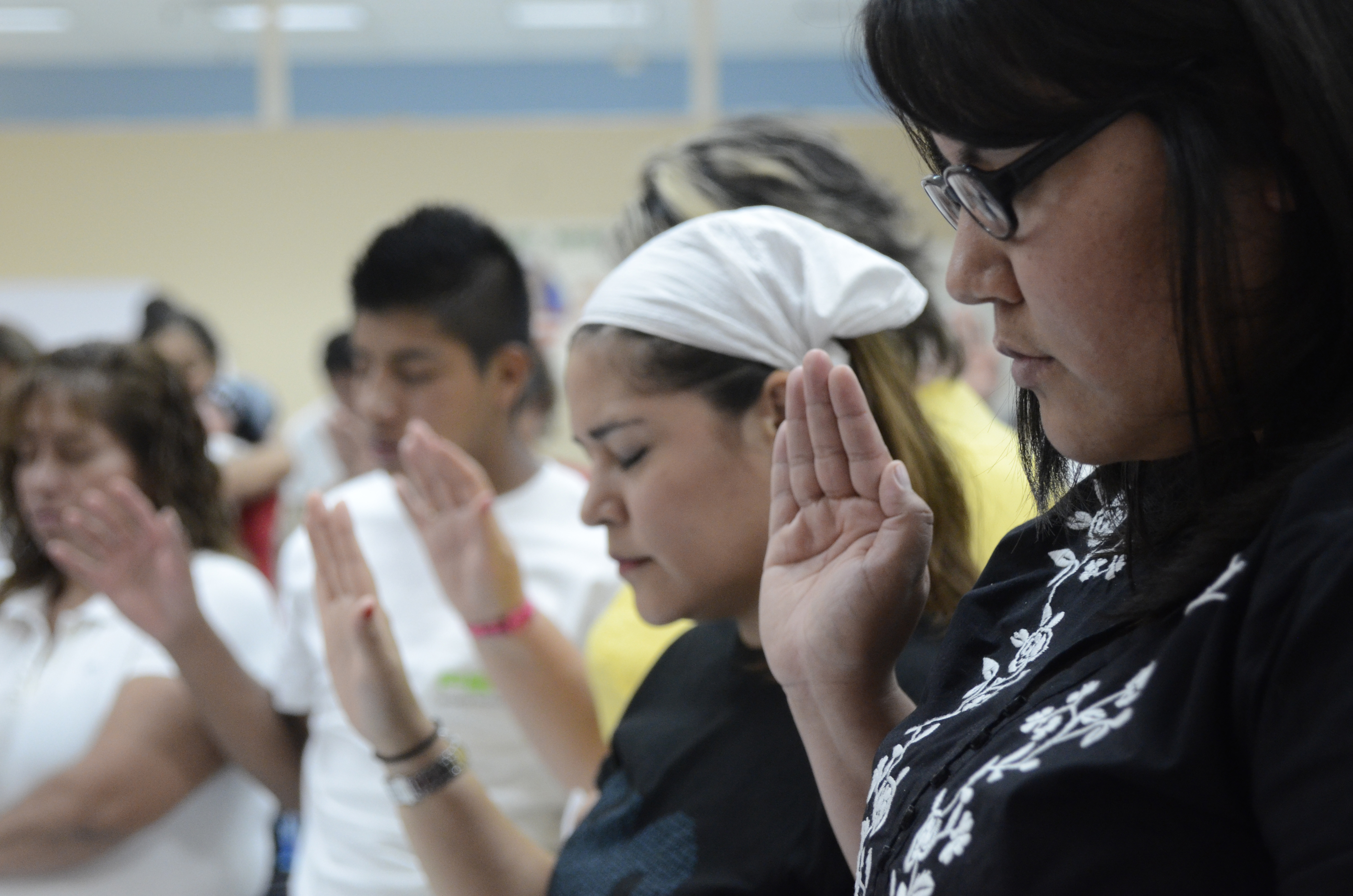As students returned to area schools last week, teachers were greeted with some fresh faces.
For some of those faces, the adjustment will be harsher than for most. Hamilton County School officials say at least 30 unaccompanied immigrant children -- part of the wave that has entered the country illegally in the past nine months -- are enrolled in the school system this year.
In Dalton, Ga., meanwhile, 40 immigrant children have enrolled in the system's Newcomer Academy, a program officials launched this year when they noticed the wave of children flocking to the city. The academy, which is at Morris Innovative High School, is filled with students between the ages of 13 and 19.
Caroline Woodason, Dalton's assistant director of school support, expects the number of students enrolled in the academy to increase. She said some of them cross the border as unaccompanied minors.
These local students are among some 63,000 children who have come into the country since October and were funneled to detention centers where they initially were held.
President Barack Obama has referred to the influx of children as a "humanitarian crisis." The growing number of kids has raised sympathy as well as anti-immigrant sentiment, as well as questions about whether they should be allowed to remain in the country or be sent back where they came from. Primarily they arrive in the U.S. from Honduras, Guatemala and El Salvador, where gang violence is pervasive.
There has been no word from the federal government on where the kids sent to Georgia and Tennessee have ended up. Thursday's news from Hamilton County Schools was one of the first indications that some of the children are in Chattanooga.
In Hamilton County, most are teenage boys enrolled at Howard and East Ridge high schools, said Julie Ann Legg, director of English for Speakers of Other Languages in the county schools.
Legg was among more than a dozen community leaders who met at Chattanooga State Community College to learn how to assist the children and other immigrants who speak English as a second language. They said there's a good chance that more such children will end up here.
Several of the leaders in attendance said they want to change public perception of the immigrants.
Most people don't understand the violence and desperate conditions they're trying to escape, said Gladys Pineda-Loher, director of community outreach for Chattanooga State.
She told the story of two teens who came to Chattanooga from Guatemala. Their parents and older brother were shot to death while they hid in another room, she said.
The parents told them to run and they thought they could find safety in the United States.
"I can't look at this as a political situation," said Pineda-Loher. "They're trying to survive."
The experience of the children Pineda-Loher met are common to the immigrants coming into the school system, said Legg.
"The bottom line is that the kids are not safe where they are," Legg said. "It's a hostile environment. This is a safety issue."
The students need common items such as school clothes and supplies, but their biggest unmet need is emotional support, said Legg.
Many of the teens are living with sponsors or foster parents, said Pineda-Loher.
Several are with family members, but they're still strangers. In some cases, the children had never laid eyes on their relatives before, Legg said.
The family members care for the children, including providing for health care and making sure they enroll in school.
"They have no support system," she said. "Just get to know them. Find out their interests."
In Dalton, school officials decided to create the Newcomer Academy after noticing a group of young boys trickling into the community beginning in October. She said the boys could not speak English. And even if they could, their academic level was behind an average American student of their age.
On the first day of school Thursday, Woodason said, the academy's three teachers taught the students how to introduce themselves in English. Eventually, the groups will be divided into three classrooms, based not on their age but on their comprehension of English and academic level.
The lowest-level students will learn things usually taught in first-grade classrooms -- what colors are, what shapes are and how to count, for example. The highest-level students will be in the equivalent of a fourth-grade classroom.
Most of the students come from Guatemala, Honduras and El Salvador. Some don't speak Spanish. They come from isolated villages in the mountains of Guatemala, where natives still speak Mayan dialects.
Woodason said the teachers don't know how to speak that language, but other local students who immigrated years ago and still know the dialect are helping out.
At the meeting at Chattanooga State on Thursday, many community leaders offered to help:
• One local company offered computers for use in Latino churches.
• Becky Witt, with the Hamilton County Baptist Association and the St. Andrews Center, provides English as a Second Language classes.
• Police officers told the group about an Explorer program for youths ages 12 to 21 in which they receive mentoring.
• Pineda-Loher said she wants to organize a Latino Festival for 2015 and to create a directory of services offered to the immigrant community.
A representative from the city's Office of Multicultural Affairs also attended.
"We just want to be part of the solution," said Pineda-Loher, who hosted the meeting.
"The situation in Central America is affecting us," she said, "and we want to be part of the solution in a good way."
Contact staff writer Tyler Jett at 423-757-6476 or at tjett@timesfreepress.com. Contact Yolanda Putman at yputman@timesfreepress.com or 423-757-6431.

